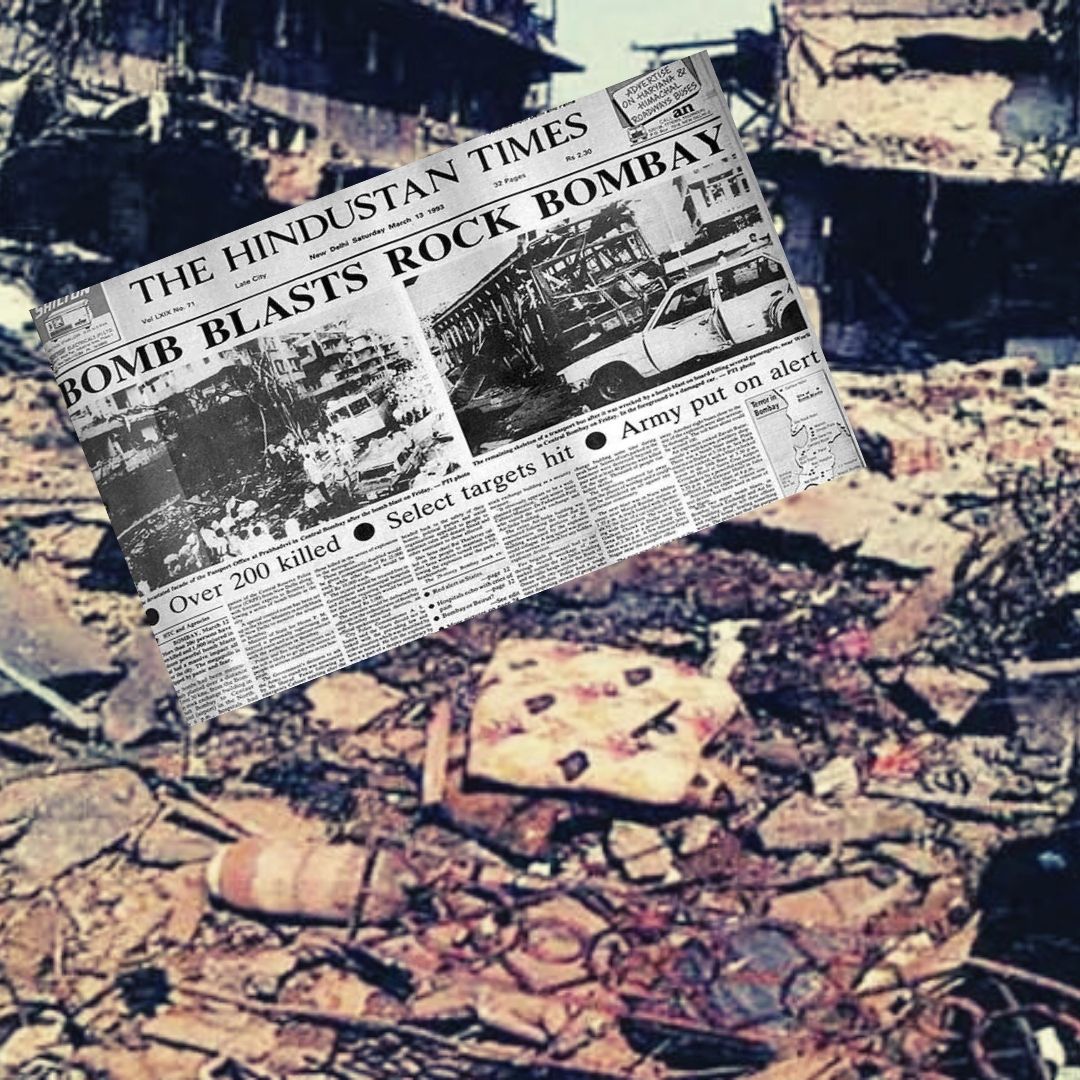
Image Credits: Hindustan Times, India Today
1993 Mumbai Blasts: 12 Horrifying Explosions That Changed India's Financial Capital Forever
Writer: Tashafi Nazir
For most people, journalism sounds hectic and chaotic. For her, it's a passion she has been chasing for years. With an extensive media background, Tashafi believes in putting efforts on presenting a simple incident in the most interesting way.
Maharashtra, 12 March 2022 9:01 AM GMT
Editor : Snehadri Sarkar |
While he is a massive sports fanatic, his interest also lies in mainstream news and nitpicking trending and less talked about everyday issues.
Creatives : Tashafi Nazir
For most people, journalism sounds hectic and chaotic. For her, it's a passion she has been chasing for years. With an extensive media background, Tashafi believes in putting efforts on presenting a simple incident in the most interesting way.
The 1993 Bombay bombings were a series of 12 terrorist bombings in Bombay, Maharashtra, on March 12, 1993. The single-day attacks resulted in 257 deaths and left 1,400 people injured.
Twenty-nine years ago, on this day in 1993, a series of bomb blasts brought the financial capital of India, Mumbai (then Bombay), to a grinding halt in just a span of two hours and ten minutes.
The 1993 Bombay bombings were a series of 12 terrorist bombings in Bombay, Maharashtra, on March 12, 1993. The single-day attacks resulted in 257 deaths and left 1,400 people injured.
Reportedly, Dawood Ibrahim, leader of the Mumbai-based international organised crime syndicate D-Company, coordinated the attacks. Ibrahim was believed to have helped and organised the bombings through his subordinates Tiger Memon and Yaqub Memon.
The Bombings
On March 12 1993, a powerful car bomb exploded in the basement of the Bombay Stock Exchange building in the afternoon around 1:30 pm. The 28-story commercial building was severely damaged and several nearby office buildings also suffered huge losses. Reports indicate that the explosion killed 50 people. About 30 minutes later, another car bomb exploded in front of the Mandvi branch of Corporation Bank. In a span of just two hours, a total of 12 bombs exploded throughout the entire Mumbai city. Most of these bombs were car bombs, but some were placed in scooters.
Three hotels –Hotel Sea Rock, Hotel Juhu Centaur, and Hotel Airport Centaur – were targeted by suitcase bombs that was left in rooms booked by the perpetrators.
Banks, the Air India building, the regional passport office, and a major shopping complex were also targeted. Bombs exploded at Zaveri Bazaar and a jeep-bomb exploded at the Century Bazaar opposite it.
Grenades were thrown at Sahar International Airport and Fishermen's Colony, apparently targeting certain citizens. The deadliest explosion severely damaged a double-decker bus, with 90 people killed.
On September 12 2006, the special TADA court convicted four members of the Memon family on charges of conspiring and abetting acts of terror. The court gave jail terms from five years to life imprisonment that would be determined based on the severity of their crime. The court also acquitted three other members of the Memon family, with the judge giving them the benefit of the doubt.
The Supreme Court pronounced its judgement on March 21 2013, after more than 20 years of judicial proceedings, upholding the death penalty against suspected ringleader Yakub while commuting the previous death sentences against ten others to life in prison. However, two of the main suspects Ibrahim and Tiger, have not been arrested or tried yet.
India's three-judge Apex Court bench rejected Yaqub's curative petition, saying the grounds he raised do not fall within the Supreme Court laid principles in 2002. The Maharashtra government finally executed him on July 30 2015.
The Prime Suspects Of Mumbai Blasts:
In 2017, a special court had found six prime suspects guilty for planning these attacks, according to News18.
Abu Salem: He was found guilty for distributing arms and ammunitions
Mustafa Dossa: He was accused of bringing arms and explosives into India. He was also charged with conspiracy and directing people to Pakistan for training
Tahir Merchant: He was charged for making travel arrangements for other offenders to Pakistan
Riyaz Siddiqui: He was found guilty of shipping explosives used in the blast
Firoz Abdul Rashid Khan: He was charged for receiving the ammunition in Mumbai
Karimullah Sheikh: He was charged for smuggling arms into India
Also Read: Nine-Month Pregnant TN Woman Creates Record By Performing 'Silambam' For 6 Hours
 All section
All section














